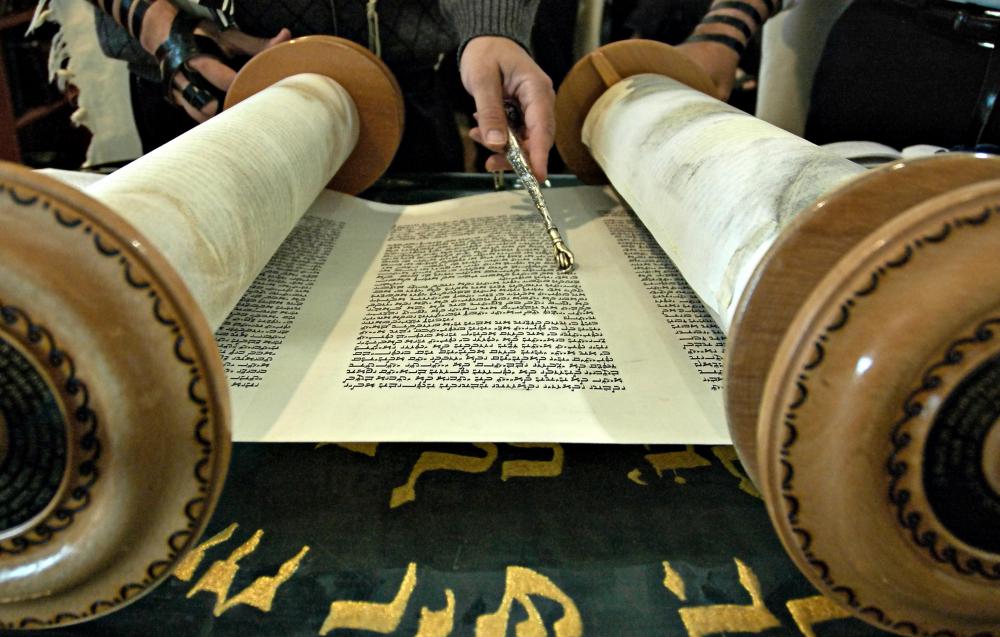At WiseGEEK, we're committed to delivering accurate, trustworthy information. Our expert-authored content is rigorously fact-checked and sourced from credible authorities. Discover how we uphold the highest standards in providing you with reliable knowledge.
What is a Kohen?
A kohen, or cohen, (kohanim or cohanim in the plural form) is a male descendant of Aharon HaCohen, or Aaron, who was Moshe’s or Moses’ brother. Aharon was the first high priest or Kohen Gadol. All male descendants are also considered to be kohens or priests.
The word priest in this context is a bit different than the one in the Christian context. Here, priest is meant to refer to a person who performs religious acts or procedures. This definition is in some ways the same as the Christian version, but a kohen isn’t the sort of religious and spiritual leader that a Christian priest is. That leadership role is mainly the purview of the rabbi in Judaism. A kohen is responsible for ceremonial activities like leading services and offering sacrifices. After the Second Temple in Israel was destroyed, which was around 586 BCE or 3174 AM in the Jewish calendar, the kohen's role diminished and the rabbi took up the responsibility for ceremonial activities.

While we may casually associate a rabbi to be the equivalent of a pastor or priest in Christianity, this isn’t entirely accurate either. Rabbi actually means teacher. To become a rabbi, one must have studied the Torah deeply. Some sects in Judaism allow women to be rabbis, others save this role for men only. Regardless, because of a rabbi's deep knowledge, his, or her, community role is to instruct according to the Torah and Talmud. A rabbi may also be granted the authority to judge. While a rabbi may lead spiritual services, especially when a kohen is not available, priority is given to the kohen.

Kohanim are afforded a higher level of purity, and as such, the Torah affords them with special rules to protect their ritual purity. For example, in general, a kohen may not come into contact with dead bodies unless the deceased is his father, mother, brother, unmarried sister, child, or wife. A kohen is also forbidden from marrying a divorced woman or a convert.
In honor of their services to the community in biblical times, kohanim were given priority in a variety of ways. For example, they were provided with various gifts depending on the circumstances. These gifts included such things as kosher animals, bread, and peace offerings.
In modern times, a Jew is a kohen if he is descended from the first priest, Aaron, who was the brother of Moses. Having the last name of Cohen or Kohen or any of its derivations is not proof alone that one is a kohen in this sense. A study conducted in 1997 showed that kohanim do share some common characteristics in their Y chromosomes suggesting, but not proving, that they do share some common ancestry.
Kohanim today may still have privileges and obligations especially in Orthodox and Conservative Jewish communities. They may recite the Priestly Blessing or lead certain readings from the Torah.
AS FEATURED ON:
AS FEATURED ON:












Discussion Comments
In reference to the second post, the Kohen gadol was the High Priest.
Now, to the article: a Kohen never loses their status as such and still has duties to perform today. A Rabbi does not nor ever will take precedence over a Kohen. It is the duty of the Kohen to be the spiritual leader, period. That is the main problem with Rabbinical Judaism; although it can be important to have a Rabbi, their authority does not and never will exceed that of a Kohen, nor does a Rabbi replace a Kohen.
The article writes that "some sects of Judaism allow women to be rabbis". One of these so called "sects" is Reform Judaism, the largest movement of Judaism in the United States today. Reform Judaism and other progressive movements dismiss the practice of hereditary priesthood altogether as being outdated and non-egalitarian. Kohanim have no special status in Reform synagogues.
Sometimes they are called the Kohen ha-Gadol.
Post your comments